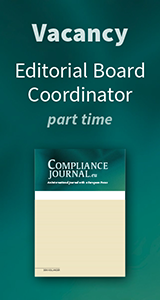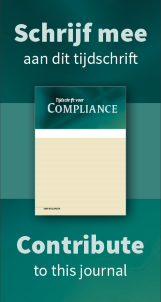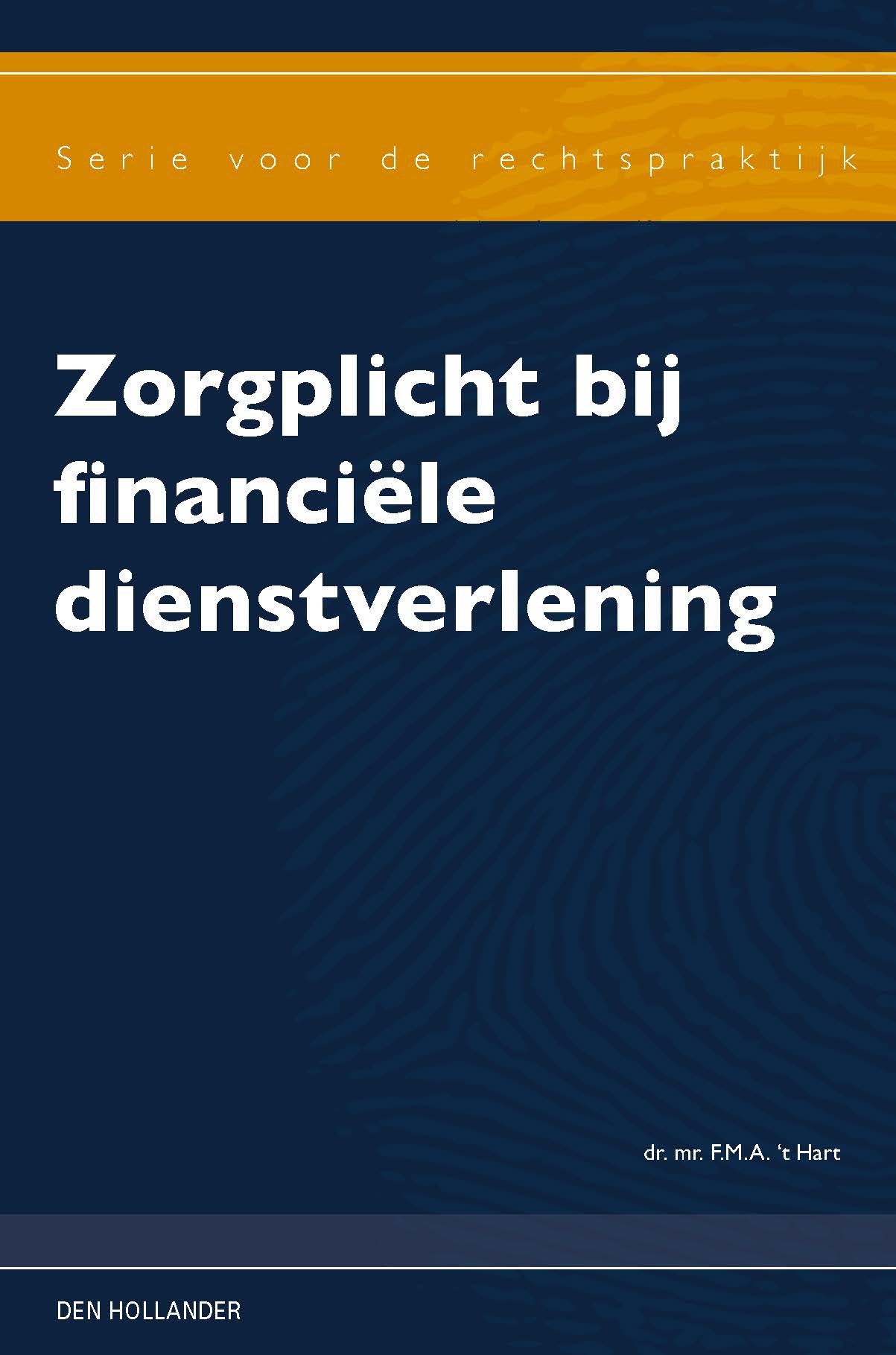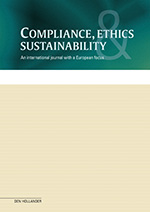Editorial
Het artikel is in de opmaak van het tijdschrift rechts als pdf beschikbaar.Before you lies the fifth edition of the Compliance, Ethics & Sustainability Journal in 2023. The theme of this edition is 'Sanctions & Export Controls’. Embargoes were first recorded in 433/432 BC. Sponsored by the politician and general, Pericles, the Athenian Empire issued a trade embargo on Megara, its neighbour, who had violated sacred land some years earlier. The blockade also referred to as the Megarian Decree was intended to punish Megara. Since then, embargoes have been used as a means of economic warfare. A very current topic is the expansion of Russia’s war of aggression against Ukraine in February 2022. Never before have European sanctions played such an important role in Europe’s foreign policy strategy towards a fellow G20-member. As sanctions regimes all over the world get seemingly more comprehensive and complex, it has become essential that compliance professionals are aware of current European and global developments and, if relevant, anticipate them in a timely manner. This edition of the Journal provides information, inspiration and aspirational goals for compliance professionals by addressing this theme from different angles.
A Framework for Effective EU Sanctions Compliance Programs
Jan Dunin-Wasowicz
At present EU sanctions legislation does not formally require EU operators to implement sanctions compliance programs. The absence of such legal obligation, however, does not mean that EU operators cannot be found responsible for having failed to put in place adequate safeguards to ensure compliance with sanctions. In the absence of official structured guidance, it is nevertheless possible to glean from various sources and practical experience a common set of principles. This article first discusses the origins and status of EU sanctions compliance guidelines. It then raises some of the shortcomings of the current approach and argues that both the European public and private sector have an interest in defining a common baseline to help provide increased transparency, predictability, and stability. Finally, the article proposes an initial set of common principles to develop risk-based EU sanctions compliance programs; suggesting that collectively, these principles could serve as the pillars of an EU-wide guidance on risk-based sanctions compliance frameworks.
Moving targets: how designated individuals manage to put their estate out of the reach of sanctions
Lior Delfassy
The article identifies the complexities and difficulties that operators in the European Union have when it comes to the notion of control and the identification of who ultimately controls concealed assets. Clearly a vital piece of the puzzle when investigating potential or confirmed sanctions breaches. The author compares US and EU legislation and the way that designation is applied, identifying that the US Office of Foreign Assets Control (OFAC) has developed a clear-cut 50% rule: if a company is owned by a designated person, it is considered a designated person itself. In the U.S., being controlled by a sanctions target who owns less than 50% shares can be another ground for designation; therefore, OFAC gets to choose which controlled entity it designates. In the European Union however, asset freeze measures are applied against designated persons but also against the entities they own or control. The onus of the due diligence to assess the control is partly transferred to the private sector. Given these examples Delfassy goes on to outline some tools and data that are available to help compliance officers with this assessment.
Sanctions: the law, enforcement and the right response
Aziz Rahman, Angelika Hellweger and Zulfi Meerza
This article outlines UK and European law relating to sanctions. It explains the legal framework, the offences and the penalties that can be imposed, how the law is enforced by the relevant authorities, and how best to respond to the prospect of a sanctions-related investigation. Covering Civil and criminal enforcement, the article also looks at money laundering implications within the UK. This is relevant to sanctions cases because sanctions breaches and circumvention are criminal offences: any transfers of funds or assets that occur as a result of such activity are likely to become the proceeds of crime and, therefore, recoverable property under the UK’s Proceeds of Crime Act (POCA). In addition, the authors also comment upon proposals which are being drafted by the EU for a directive which, if enacted, would add sanctions evasion to the list of serious EU crimes. Looking at how to respond to a breach, the article recognises that a one-size-fits-all approach will not work due to their nature and goes on to outline an effective strategy.
A sanctions risk assessment as a prerequisite for an effective sanctions compliance program: Five recommendations to improve its effectiveness
Arend Koper
For many years, the Dutch Financial Industry’s risk assessments relating to financial economic crime have been dominated by scenarios involving money laundering and terrorism financing risks. In general, less attention has been paid to the various sanctions related risks Dutch financial institutions are exposed to. A recent publication of De Nederlandsche Bank concerning the ‘results of DNB’s examinations on compliance with sanctions regulations’ showed that the current sanctions risk assessments of financial institutions do often not have the right level of maturity to be effectively used by management as a steering document. In this article, Arend Koper discusses the role of the sanctions risk assessment within the sanctions compliance program and examines the current Dutch legislative requirements as well as the impact of the upcoming modernization of the Dutch sanctions regime with regard to this topic. In addition, the author provides five recommendations to compliance professionals working in the financial industry and other non-financial sector organizations and market participants in order to improve the effectiveness of their sanctions risk assessment.
Brothers in EU Arms Export Controls?
The Netherlands’ intention to join the Agreement on the Control of Arms Exports between France, Germany, and Spain
Frederik van Essen and Herman Annink
In July 2023 the Dutch government announced its intention to join the multilateral Agreement on the Control of Arms Exports between France, Germany, and Spain as it is anticipates a positive impact on the Dutch defence and security sector. While the EU has been working towards a common European approach to arms export controls for over three decades, the EU Common Position issued since 2008, did not achieve the desired convergence on arms export policies. The recent push towards further European defence cooperation has paradoxically led to the creation of this multilateral agreement. By unpacking this paradox, the Agreement seems to have the potential to improve convergence between agreement partners in relation to their joint defence projects. It’s a concrete step in clarifying export control policy decisions and criteria for the participating Member States. The Dutch intention to join the Agreement is primarily motivated by the need for further European defence cooperation and the desire for the Netherlands and its defence industry to actively contribute to such cooperation. If the Netherlands were to succeed in joining the agreement and if other Member States are open to joining as well, this could in fact also inform and positively influence the upcoming 2024 revision of the EU Common Position.
Tackling increased measures restricting finance and trade– taking lessons from the AML regulated sector
Matthew Worby
The Russian invasion of Ukraine in 2022 significantly contributed to the expansion of the sanctions (financial and trade) and export controls regimes of the US, EU, UK, and other Western states. This expansion included the imposition of restrictions on products and services which historically had never been particularly restricted. The subsequent enforcement risk has greatly complicated companies' ability to conduct international business. This article shall explore the three lessons that can be drawn from the AML regulated sector which comprise a systematic business wide approach for each client: How to take an effective risk-based approach; how to conduct effective due diligence; and how to create an appropriate control environment. It is critical for companies to keep their risk assessments under constant review and consider how any changes might affect their business. Each change, however minor it might seem, may have a significant cumulative impact on a business and affect its risk profile, sometimes in unexpected ways. The author also highlights two specific and significant issues that any compliance programme should mitigate against: Paying lip-service to red flags and a lack of scrutiny or oversight. To address these Worby suggests that the compliance team needs to be in frequent context with the business and ensure that red flags are contextualised.
Sanctions Compliance Programs for the Fintech Sector
Amir Fadavi and Elizabeth Severinovskaya
The inherent features of fintech solutions, including frictionless user experience, global reach, and increased financial inclusion seemingly conflict with developing and maintaining robust compliance controls, including effective sanctions compliance programs. With this in mind, sanctions compliance officers in the fintech sector may be wondering how to develop and maintain a purpose-built sanctions compliance program tailored to their unique risk profile. In this article, some valuable lessons learned are shared on how to design and implement such a sanctions compliance program in order to bolster sanctions compliance for a fintech solution. While the recommendations are mainly based on the OFAC Sanctions Compliance Framework, the authors are going beyond that framework and augments it with practical points and additional considerations.
The editorial team wishes you a lot of reading pleasure.
Arend Koper, Karen Fluks, Edward Nkune and Emmeline van Heukelem




